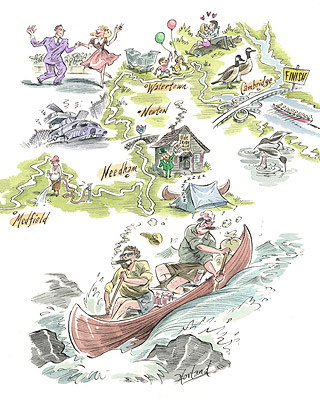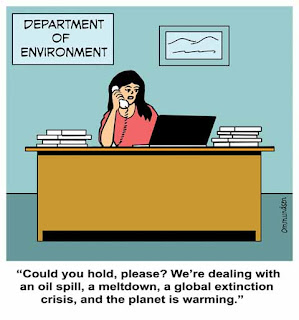 |
| The Call of Life |
We are gearing up for this year's Ecofest (formerly the Ecolympics!), with the main events running from
April 15 to April 22. We have a whole bunch of events that will help tune us in to our own ecological footprint on the environment and the consequent species loss. Sign up for our individual events (take a shorter shower, eat
less meat, bring your cup around to coffee, recycle, and more!) beginning on April 1.
April 8: A screening of the
Call of Life, a documentary film about the present mass extinction. This screening will be at 7pm in the Rich Hall cinema room (not Danielsen, as previously advertised). All are welcome. Eco-Pizza provided.
April 16: 7pm @BU Central.
Eco-Slam -- an environmental poetry slam and open mic. Come cheer on our eco-poets as they vie for eco-sustainability in our first-ever Eco-Slam. Featuring former National Slam Champion Regie Gibson in a special performance. Bring a poem for the open mic. Win a door prize. Become eco-inspired. All are welcome.
April 18: 12pm. Fred Wasserman from BU's Biology department presents a lunch-time seminar on "What is ethology?" Come and find out! Lunch will be provided. RSVP to core@bu.edu. Location: STH 406 (Classics Library, 745 Commonwealth Avenue). All are welcome.
April 19: 6pm. Musician and artist Miranda Loud from
Naturestage presents her acclaimed multi-media lecture,
Saving the Elephants, Saving Ourselves: The Role of the Arts in Social Change, that demonstrates how artists are using their art to draw attention to the plight of elephants, and shows how art can awaken empathy and kinship with other species.
Location: Kenmore Classroom Building 101 (KCB 101, 565 Commonwealth Avenue). All are welcome.
April 24: 6pm. Darra Goldstein, founding editor of
Gastronomica: The Journal of Food and Culture, and Russian professor from Williams College presents a seminar on What we Talk About When We Talk About Food. All are welcome. Location: Barrister's Hall, BU Law School (765 Commonwealth Avenue).
We are also working on some eco-excursions. Stay tuned for those.











